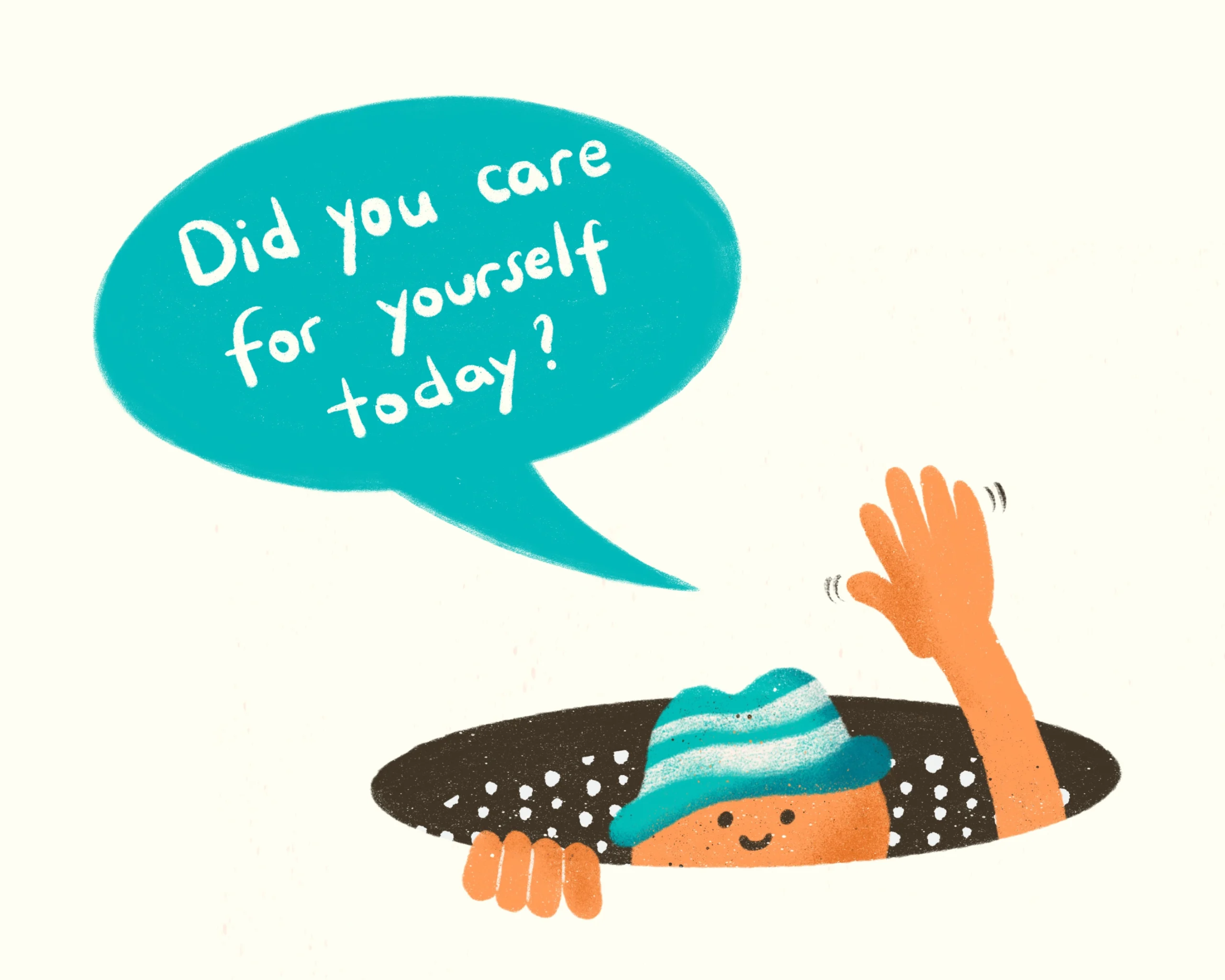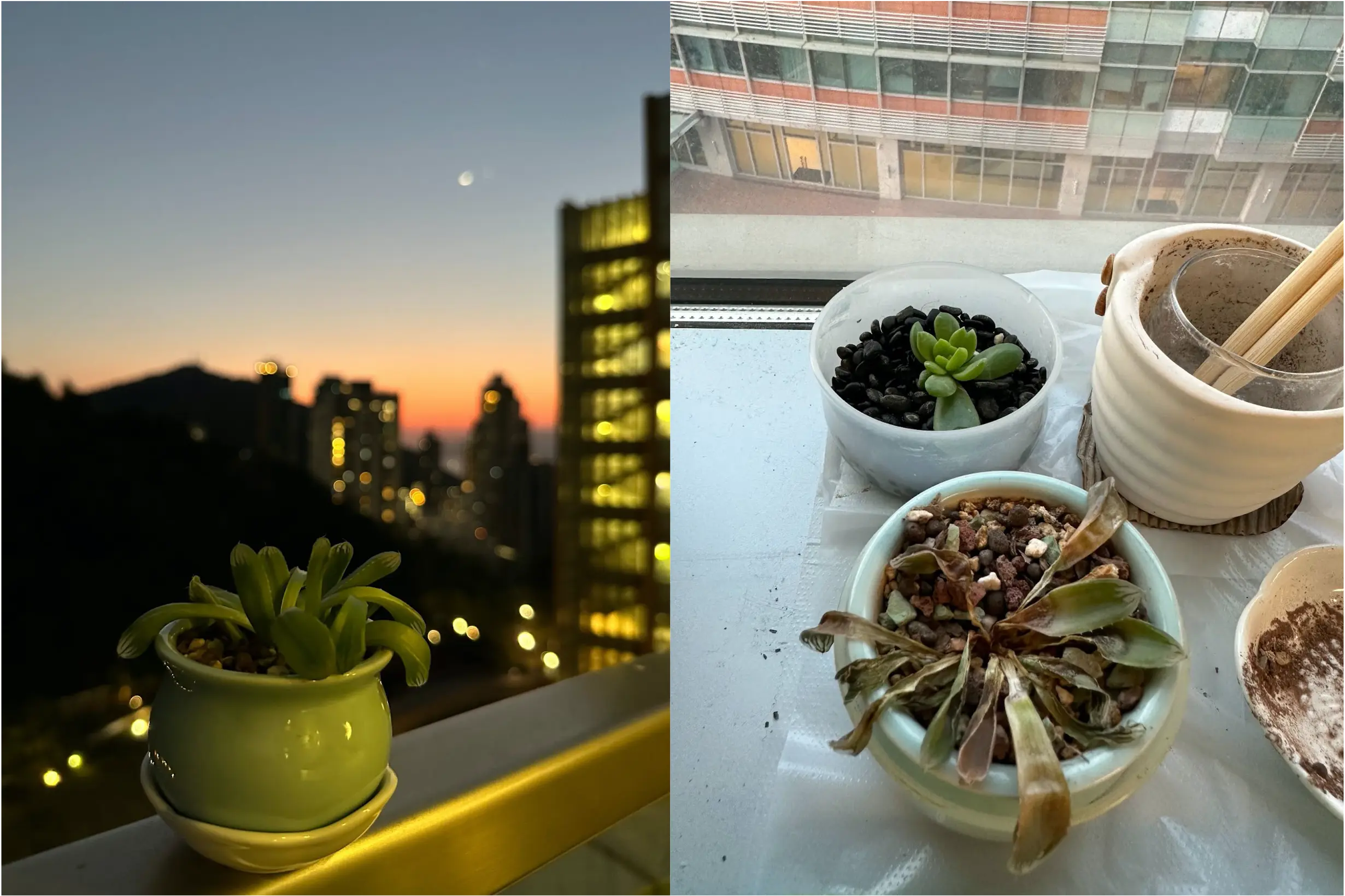 (The little potted plant I bought ; The little potted plant quickly withered, and a colleague gave me a newly cultivated succulent.)
(The little potted plant I bought ; The little potted plant quickly withered, and a colleague gave me a newly cultivated succulent.)
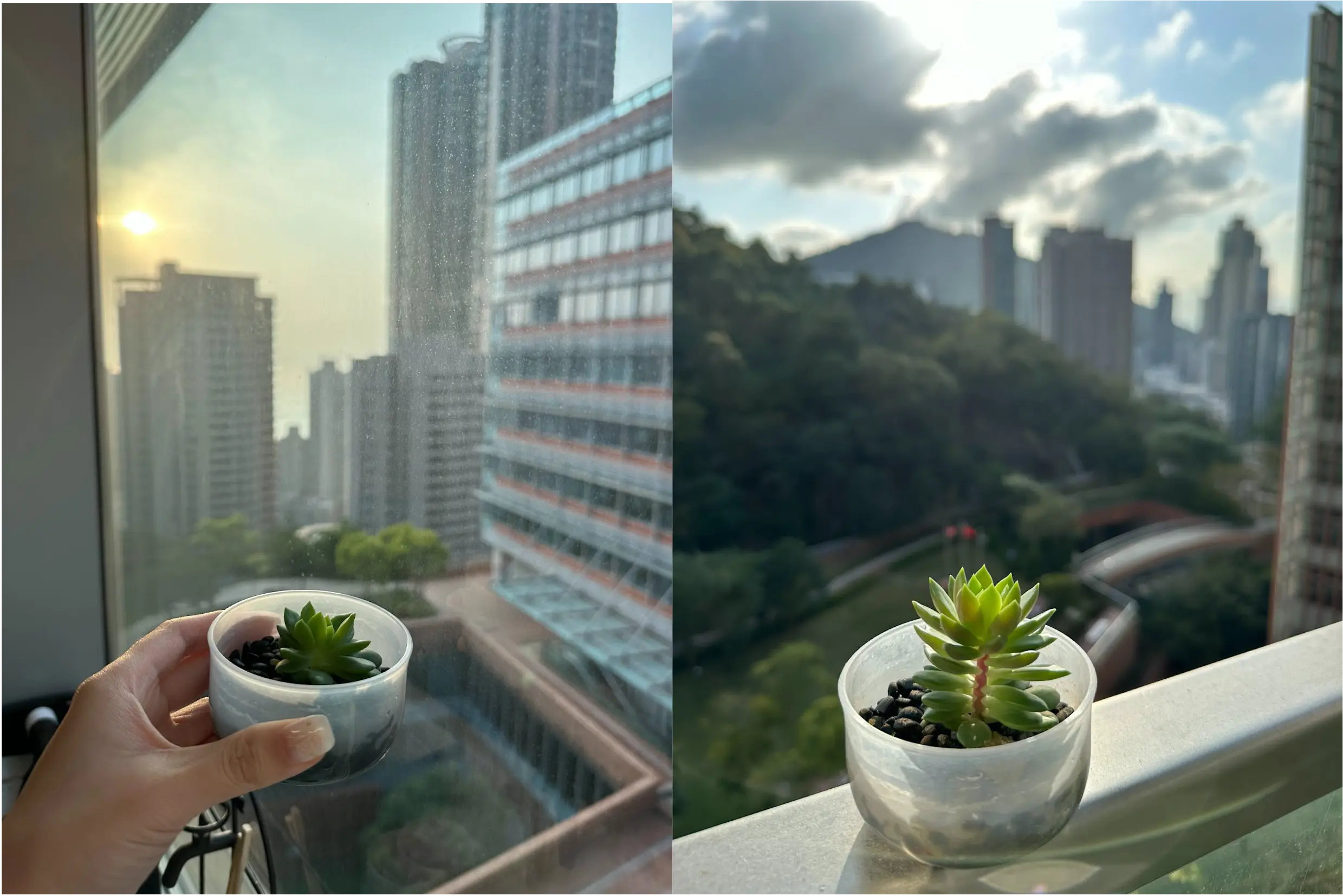 (Captured on 2023/5/19 and 2024/2/2)
(Captured on 2023/5/19 and 2024/2/2)
Have you ever grown a plant? In the past, my understanding of plants was limited to the concept that "looking at green is good for the eyes." Can’t imagine that growing small plants would bring me such profound experiences.
To be honest, it's quite embarrassing... Initially, I grew plants purely to protect my eyes. As a "beginner gardener", many plants died quickly, which made me feel very guilty. At that time, a colleague encouraged me to keep trying and gave me a small bunch of succulent leaves. She taught me how to observe when the plants need water, how much water to give depending on the weather and season, and other planting skills. Gradually, I witness how plants only need water and sunlight to grow, which is very touching. The same potted plant has now been with me for over a year and a half!
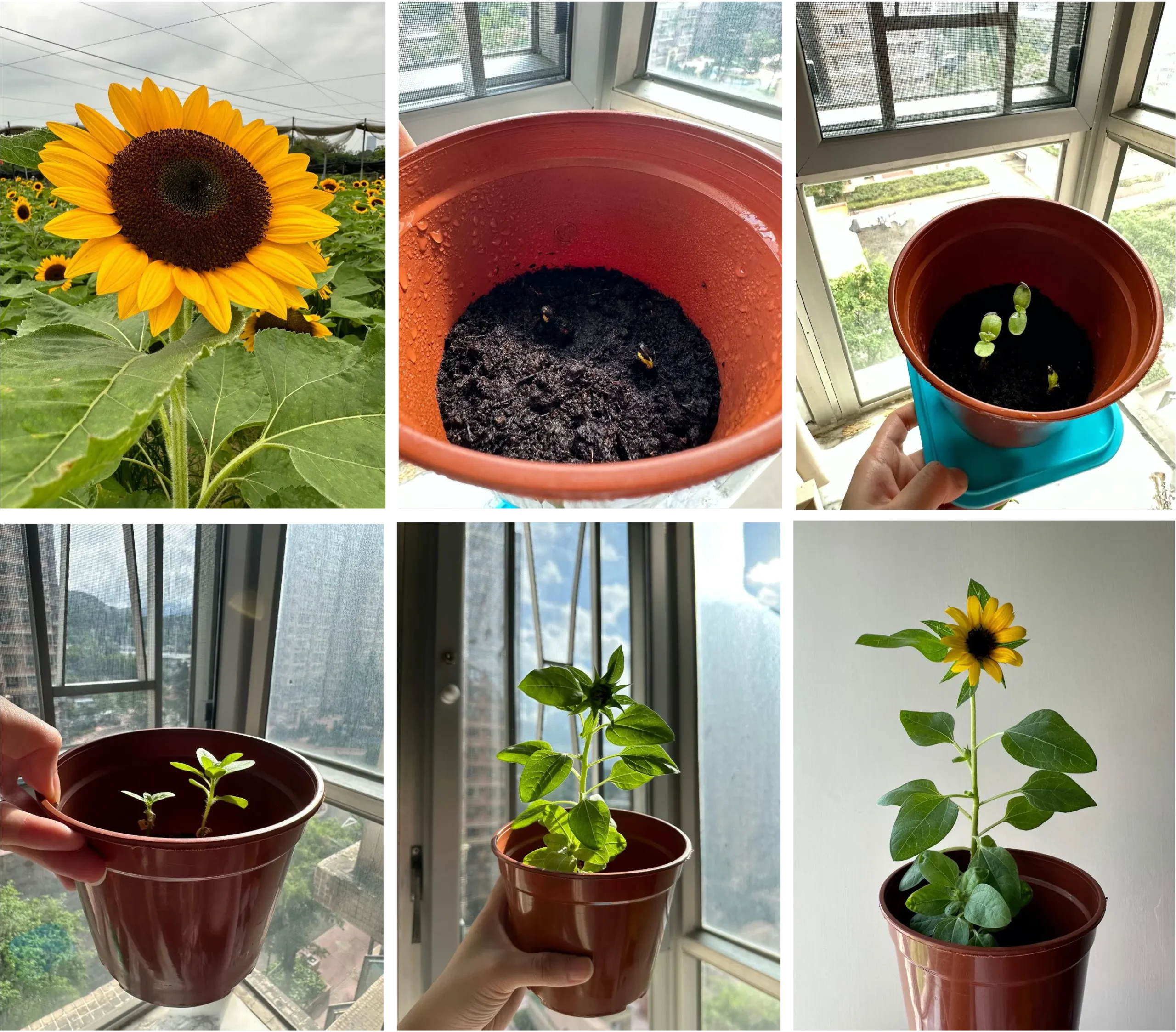
Recently in May, I visited Sunflower Garden (信芯園) in Yuen Long. Seeing so many sunflowers blooming at the same time brought an inexplicable sense of joy and comfort to me. Before I left, I noticed that sunflower seeds were very cheap, and with soil and a pot costing less than thirty dollars, then I bought them back home and started my sunflower planting journey. I place the potted plant on the windowsill at my home, and the first thing I do every morning is to water the plant. Day by day, the three seeds begin to sprout. Witnessing this subtle change, I am being touched by this small but powerful life force, it is growing quietly every day!
However, after some time, one of the seedlings couldn't compete with the other two and soon I had to say "goodbye" to it... The other two continued to strive for sunlight, and gradually, one, two, three, four, five... flower buds bloomed. I have captured this amazing process by camera.
Gently Accompanied by Nature
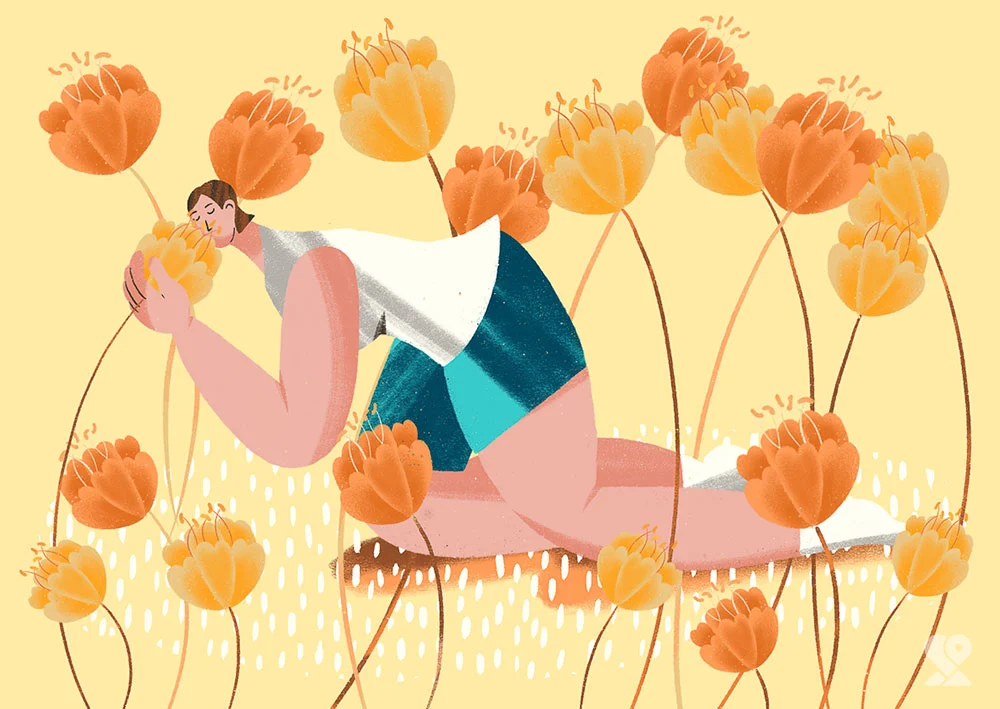
Our relationship with nature is interconnected: when we inhale, we breathe in the oxygen released by trees, plants, and flowers; when we exhale, the plants absorb the carbon dioxide we release. By observing plants, we realize that without sunlight, water, and soil, they cannot survive. Similarly, we need to take good care of ourselves, absorbing different "nutrients" in our daily lives to grow stronger and stronger.
Do you believe that there is a magical healing power in nature? When planting, I only need to focus on whether the sunflowers have enough water and sunlight, taking good care of them. Gradually, planting becomes my daily habit, starting the day by taking care of the plants and ending the day by checking whether they are fine.
I love the saying: "Present is present." Planting allows me to practice mindfulness in nature, providing a great self-care time for me. In the hustle and bustle of daily life, I have space to slow down, return to basics, and enjoy the present moment. The time spent with plants also helps me sweep away feelings of loneliness, making me aware of nature's quiet companionship: nature grows silently but audibly, and the growth of sunflowers seems to tell me, "Thank you for your gentle care every day, remember to take good care of yourself too!"
Every Person Has Their Own Blooming Season
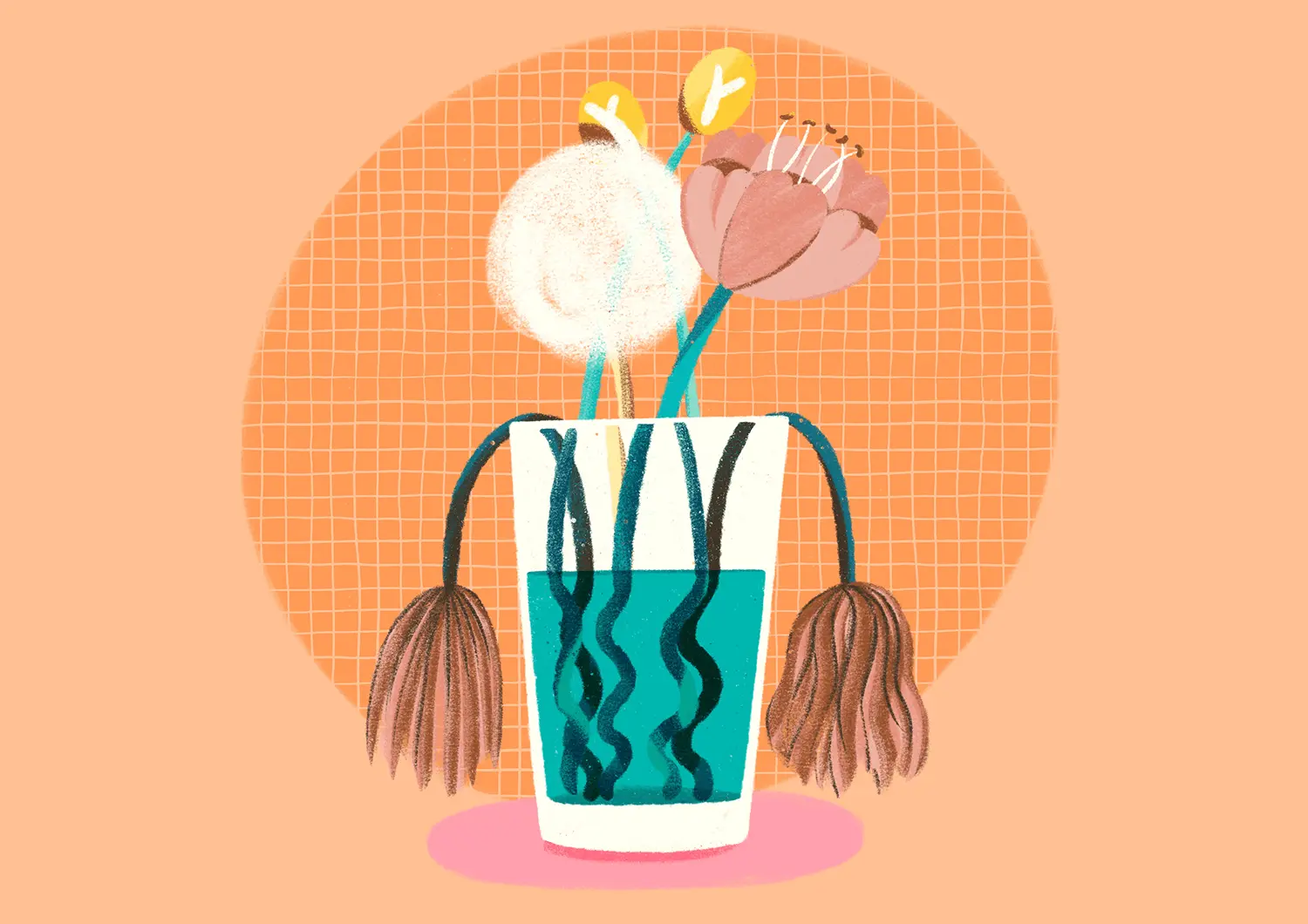
When sunflowers bloom at their brightest, it also means their blooming season will soon end. Although it's hard to let go, we must experience this law of nature. Every flower and every person has their own blooming season, with times to bloom, wither, and be reborn. This teaches me not to rush or compare, as everyone is unique and beautiful.
When flowers bloom, cherish the radiant moments and be grateful for the ability to hold onto a piece of heartland in an uncontrollable and unknown world. When they wither, appreciate the encounter and companionship, understanding that impermanence is a part of life. Do not cling to departures or possessions, as we may experience having and losing again in the future. It is a cycle. Embracing loss is not easy, but nature does go through this, and we will all experience countless impermanence, and thus grow together. That’s why we call it “LIFE”.
Taking Care of Plants is Also Taking Care of Yourself
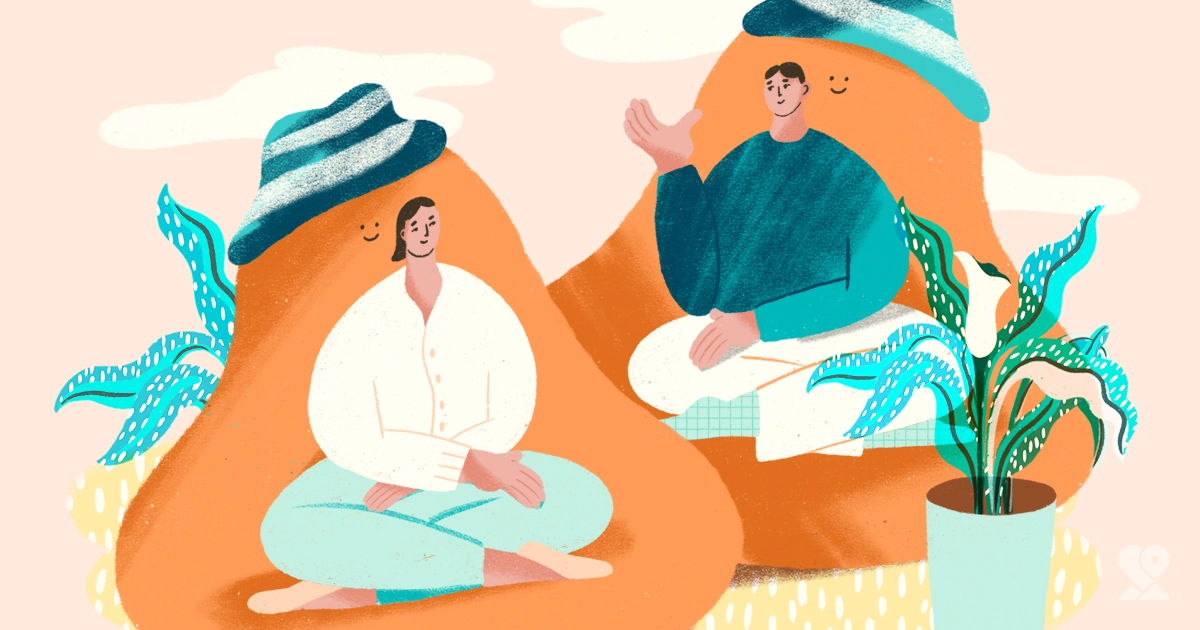
In psychology, many studies have shown that gardening can improve mental health. A study by the University of Florida involved 32 healthy women aged 26-49, randomly assigned them to a gardening course and an art creation course. They attended classes twice a week, one hour each time, for eight weeks. The gardening group learned to identify seeds, sow, transplant, harvest, and taste the edible plants they grew. The art group learned collage, painting, and printmaking. Both groups showed improvements in mental health, but the gardening group had lower anxiety levels than the art group.
Another study found that viewing plants can shift attention from work stress to controllable and predictable things, giving people the strength to face life's challenges. In a study published in the Journal of HortTechnology, 63 office workers were instructed to take a 3-minute break to water and observe the plants on their desks when feeling fatigued. After four weeks, participants showed significant reductions in tension and anxiety. Taking care of plants allows us to pause, which is also a way of taking care of ourselves.
Try It: Grow a Small Plant
When studying and working occupy most of our daily time, have you arranged any "me time" to take care of yourself? Even though I am not good at planting at the very beginning, I am experiencing the healing moments when planting now. "Rest and recharge before setting off again", would you like to have a try on growing a small plant? You can start it in a simple way, like buying a flower or a small potted plant, placing it on your study or work desk, watering it daily, observing its changes, and looking forward to the surprises it brings. You may encounter some care issues along the way, but you can improve as you go. Taking care of plants is also an opportunity to learn to take good care of yourself. You will find that slowing down allows you to hear your inner needs, and our hearts are amazingly healed by plants.
If you may not have the motivation to grow a small plant at this moment, I encourage you to try this together: observe the plants along the way from your home to take transportation, you might have unexpected discoveries. A study by Professor Jules Pretty from the University of Essex showed that engaging in "green exercise" for about five minutes daily in places with flowers, grass, and trees, such as walking, jogging, or gardening, can improve mood and boost self-esteem. The effect becomes more significant over time.
For me, I have a habit of starting my "green exercise" after leaving home, looking at the sky, breathing fresh air, and observing the flowers and trees along the way. There are always some delightful discoveries: for example after Chinese New Year, the staff in my estate would quietly put orchids on trees, some are purple, yellow, and pink! Seeing them every morning makes me feel particularly refreshed! And how about you? What scenery do you see along the way? Instead of just thinking about it, take action and let plants nourish you daily, giving you the strength to keep moving forward!
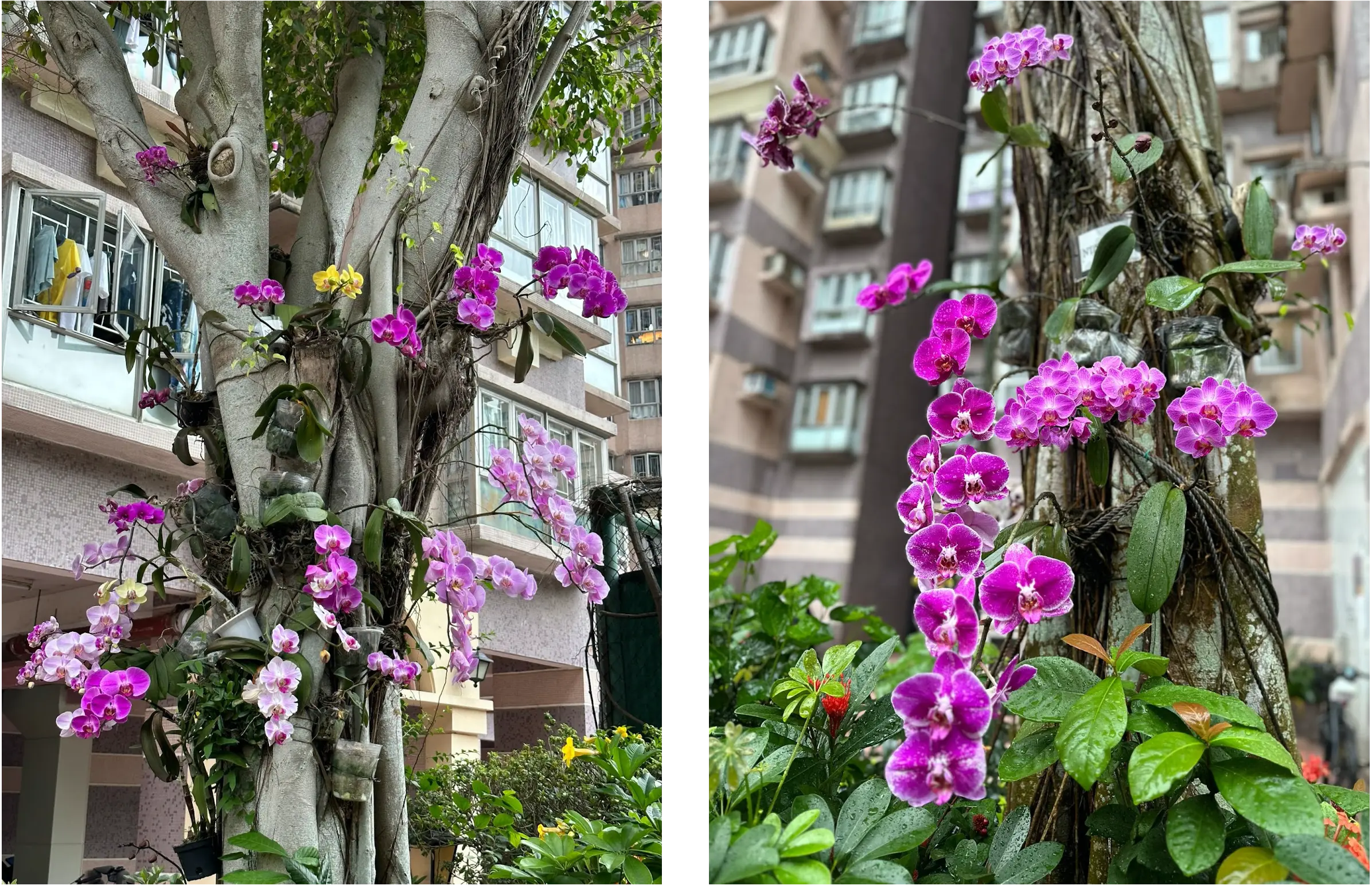
Additionally, research shows that simply viewing scenes of nature can positively impact us. In a study, participants were invited to spend ten minutes viewing photos of either buildings or nature scenes. Afterward, they took a 5-minute stress memory test that provided immediate feedback on right or wrong answers, followed by measurements of their heart rate, breathing, and blood pressure. The results showed that participants who viewed photos of natural scenes recovered more quickly from stress-related physical responses.
Here are some plants that have brought me happiness, I would like to share the photos with you! I hope you can also have joy when seeing the plants. For example, I once saw a small green grass growing in a crevice, beautifully illuminated by sunlight; I also saw plants growing on a pedestrian bridge cover, accompanied by a pair of birds, which was very cute. These plants show that vitality is everywhere, nature is amazing!
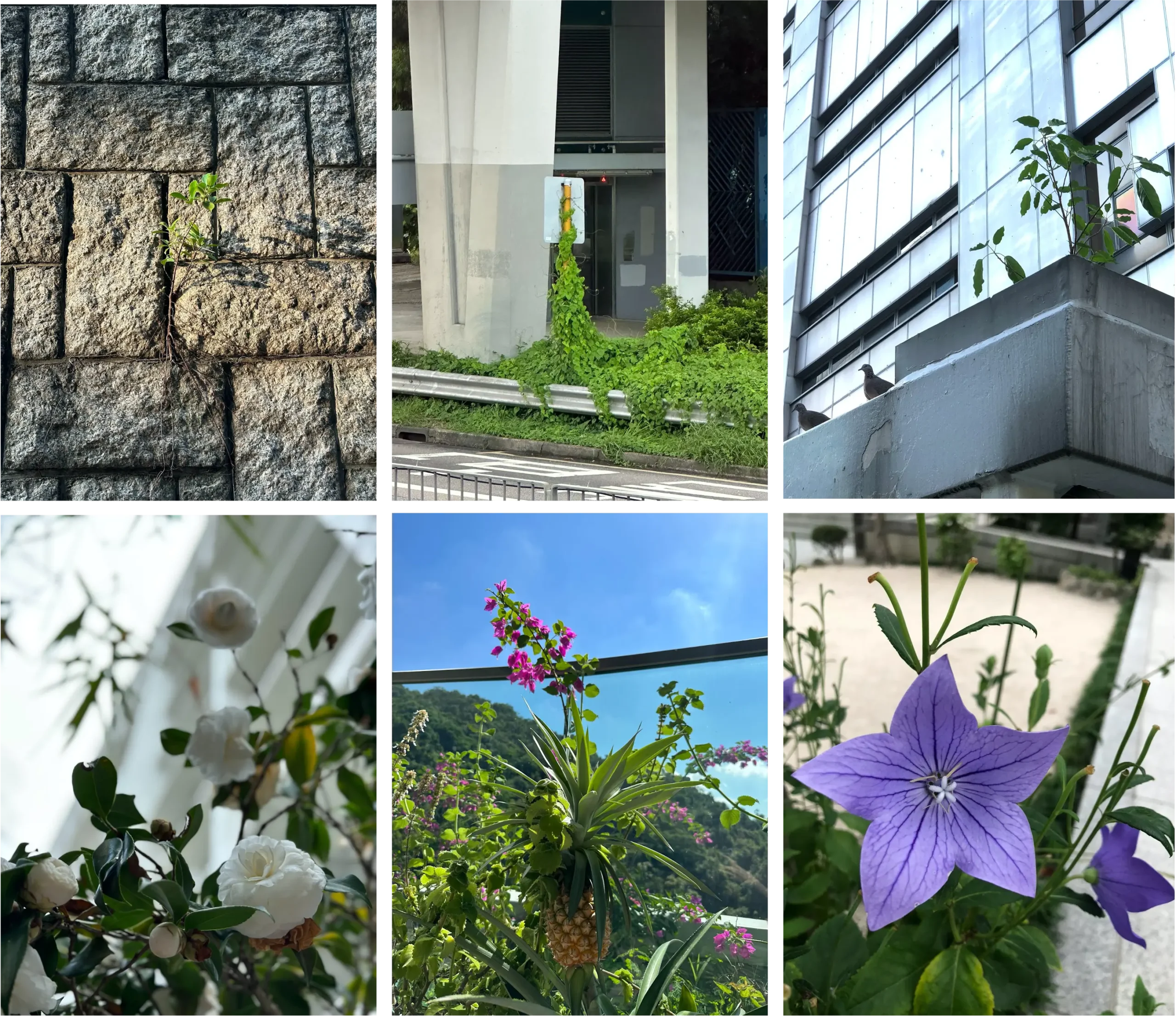
Reserving a Day to Breathe in Nature
As we come to the end of this article, would you like to see what my sunflowers look like now? Let me reveal it!
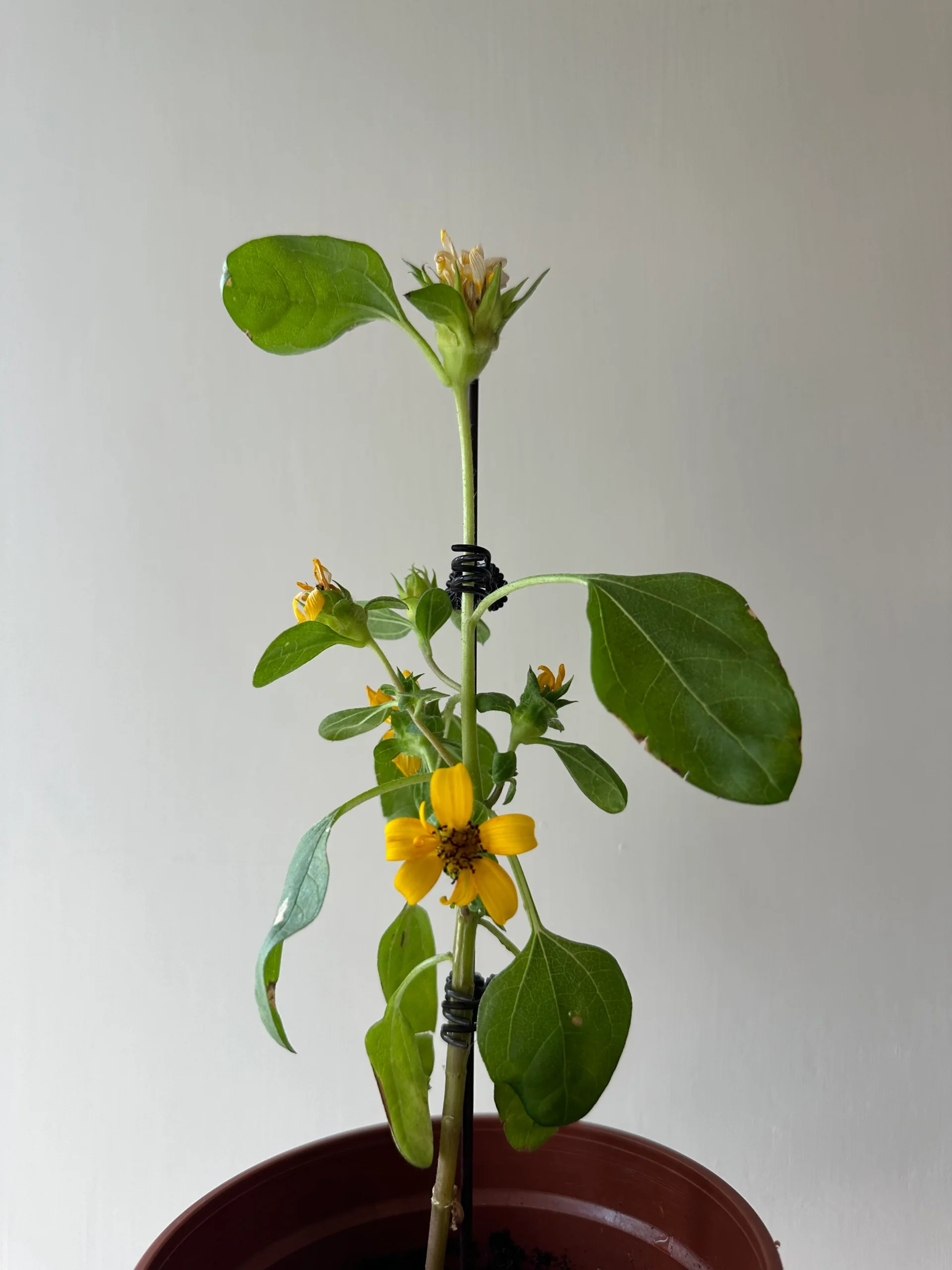
Everything in nature follows a cycle, just like the first flower bud has completed its mission and leaves nutrients for other buds. When I first saw the initial bud drooping, my heart sank, but gradually, other buds appeared, reminding me that every flower has its blooming season. Cherish its blooming moments and bid it farewell gently.
Recently, some small ants appeared on the sunflower leaves, which made me very frustrated and puzzled. But then I saw more and more buds appearing, a total of 12 buds! I have no excuse not to take good care of this "family member" that grew from a seed, sprouted, and became a sunflower. In the process of caring for plants, I am also learning to take good care of myself and love myself. This is a lifelong journey and we all learn together!
We all, as busy HongKongers, really depend on whether we are willing to reserve time for nature. Nature has always been there, waiting to heal each of us. When we feel tired in life, we can always get strength from small plants, growing together to become better us!
References:
Van Gordon, W., Shonin, E. & Richardson, M. (2018). Mindfulness and Nature. Mindfulness 9, 1655–1658. https://doi.org/10.1007/s12671-018-0883-6
Odeh, R., Diehl, E. R. M., Nixon, S. J., Tisher, C. C., Klempner, D., Sonke, J. K., Colquhoun, T. A., Li, Q., Espinosa, M., Perdomo, D., Rosario, K., Terzi, H., & Guy, C. L. (2022). A pilot randomized controlled trial of group-based indoor gardening and art activities demonstrates therapeutic benefits to healthy women. PloS one, 17(7), e0269248. https://doi.org/10.1371/journal.pone.0269248
Toyoda, M., Yokota, Y., Barnes, M., & Kaneko, M. (2020). Potential of a Small Indoor Plant on the Desk for Reducing Office Workers’ Stress. HortTechnology, 30(1), 55-63. https://doi.org/10.21273/HORTTECH04427-19
Barton, J., & Pretty, J. (2010). What is the Best Dose of Nature and Green Exercise for Improving Mental Health? A Multi-Study Analysis. Environmental Science & Technology, 44(10), 3947–3955. https://doi.org/10.1021/es903183r
Brown, D. K., Barton, J. L., & Gladwell, V. F. (2013). Viewing nature scenes positively affects recovery of autonomic function following acute-mental stress. Environmental Science & Technology, 47(11), 5562–5569. https://doi.org/10.1021/es305019p


